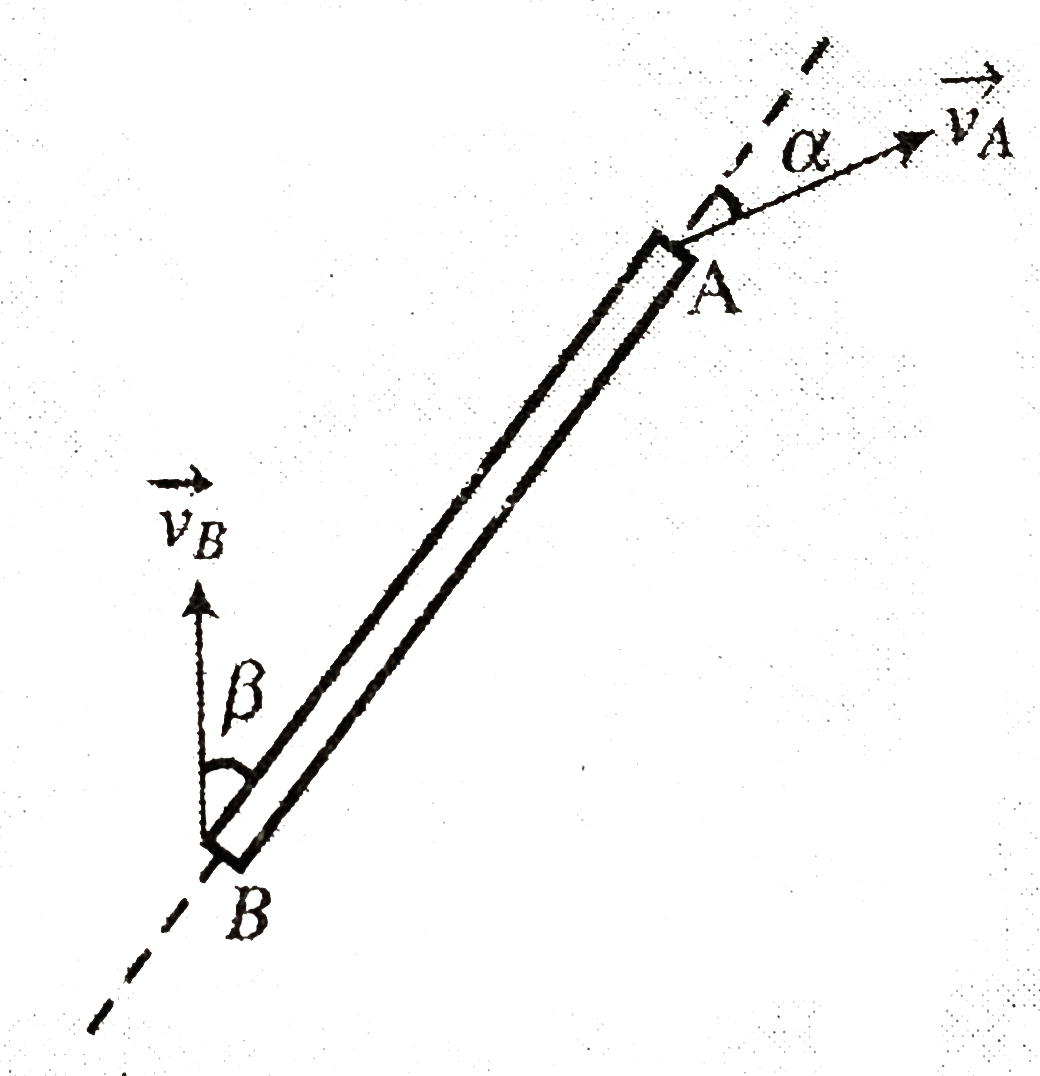Two particles of mases m1 and m2 in projectile motion have velocitie →v1 and →v2, respectively at time t=0. they collide at time t0. Their velocities become →v′1 and →v′2 at time 2t0 while still moving in air. The value of
∣∣(m1→v′1+m2→v′2)∣∣−|(m1→v1+m2→v2)| is
zero
(m1+m2)gt0
2(m1+m2)gt0
12(m1+m2)gt0
The correct Answer is:C
Step by step video & image solution for Two particles of mases m_(1) and m_(2) in projectile motion have velocitie vecv_(1) and vecv_(2), respectively at time t=0. they collide at time t_(0). Their velocities become vecv_(1)^(') and vecv_(2)^(') at time 2t_(0) while still moving in air. The value of |(m_(1)vecv_(1)^(')+m_(2)vecv_(2)^('))|-|(m_(1)vecv_(1)+m_(2)vecv_(2))| is by Physics experts to help you in doubts & scoring excellent marks in Class 12 exams.
Updated on:21/07/2023Topper's Solved these Questions
- APPENDICES (REVISION EXERCISE)BOOK - AAKASH SERIESCHAPTER - APPENDICES (REVISION EXERCISE)EXERCISE - MOTION IN A PLANE
87 Videos
- APPENDICES ( REVISION EXERCISE )BOOK - AAKASH SERIESCHAPTER - APPENDICES ( REVISION EXERCISE )EXERCISE - REVISION EXERCISE (MAGNETISM AND MATTER )
52 Videos
- ATOMSBOOK - AAKASH SERIESCHAPTER - ATOMSEXERCISE - PRACTICE EXERCISE
21 Videos
Similar Questions
Two particles of masses m1 and m2 in projectile motion have velocities →v1 and →v2 , respectively , at time t=0. They collide at time t0. Their velocities become →v'1 and →v'2 at time 2t0 while still moving in air. The value of ∣∣∣(m1→v'1+m2→v'2)−(m1→v1+m2→v2)∣∣∣
View SolutionTwo particles of same mass 'm' moving with velocities →v1=vˆi,and→v2=(v2)ˆi+(v2)ˆjcollide in-elastically. Find the loss in kinetic energy
View Solution
Knowledge Check
A particle of mass 1 g moving with a velocity →v1=3ˆi−2ˆjms−1 experiences a perfectly in elastic collision with another particle of mass 2 g and velocity →v2=4ˆj−6ˆkms−1. The velocity of the particle is
A2.3ms−1B4.6ms−1C9.2ms−1D6ms−1
Two particles of same mass 'm' moving with velocities →v1=vˆi,and→v2=(v2)ˆi+(v2)ˆjcollide in-elastically. Find the loss in kinetic energy
View SolutionAssertion : An object has given two velocities →v1 and →v2 has a resultant velocity →v=→v1+→v2.
Reason : →v1and→v2 should be velocities with reference to some common reference frame.
View SolutionTwo satellites A and B of masses m1 and m2(m1=2m2) are moving in circular orbits of radii r1 and r2(r1=4r2), respectively, around the earth. If their periods are TA and TB, then the ratio TA/TB is
View SolutionThe corresponding quantities in rotational motion related to m, →F,→pand→v in linear motion are respectively
View SolutionThe velociies of A and B are →vA=2ˆi+4ˆjand→vB=3ˆi−7ˆj , velocity of B as observed by A is
View SolutionTwo particles having position verctors →r1=(3ˆi+5ˆj) metres and →r2=(−5ˆi−3ˆj) metres are moving with velocities →v1=(4ˆi+3ˆj)m/sand→v2=(αˆi+7ˆj)m/s. If they collide after 2 seconds, the value of α is
View SolutionThe ends A and B of a eod of length l have velocities of magnitudes |→vA|=v and |→vB|=2v respectively. If the inclination of →vA relationn to the rod is α find the
a. Inclination β of →cB relative of the rod.
b. angular velocity of the rod.

View Solution